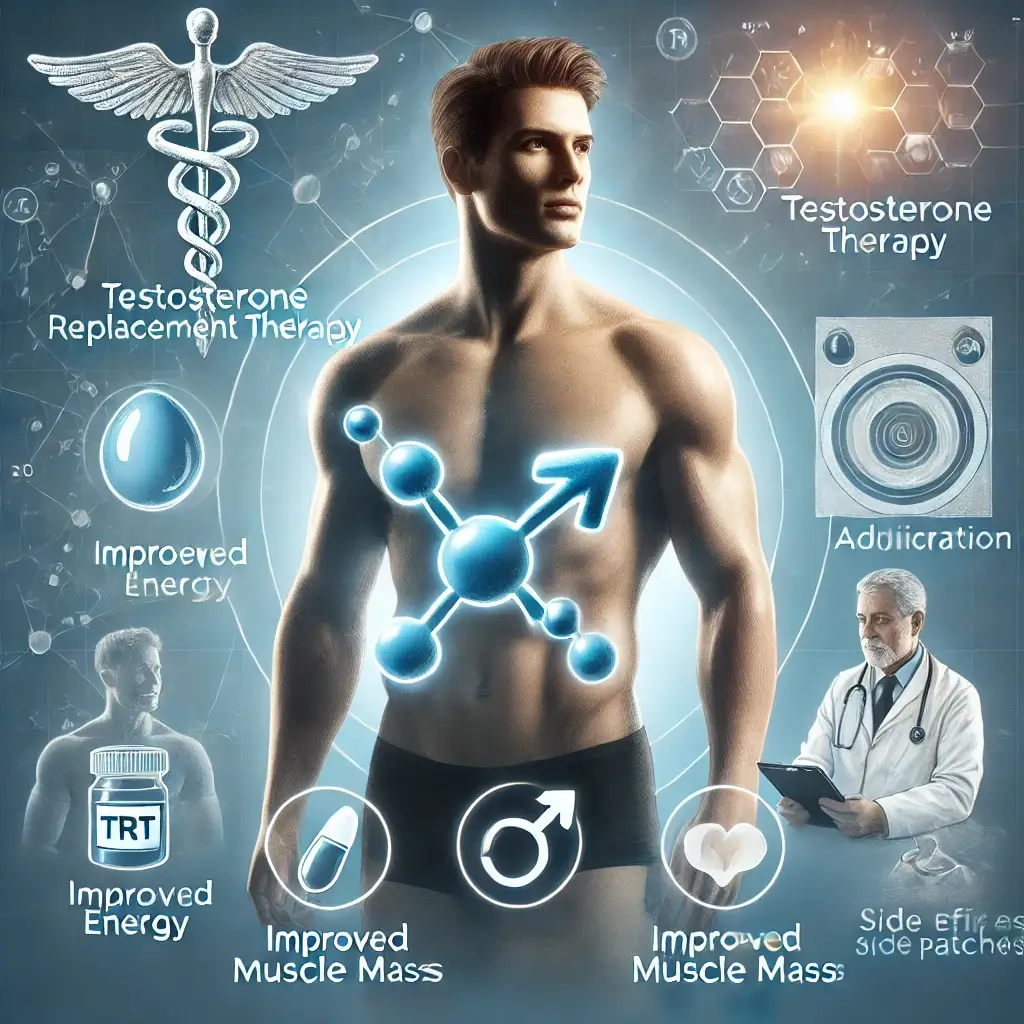Understanding Testosterone Replacement Therapy
Testosterone Replacement Therapy (TRT) is a medical treatment designed to restore normal testosterone levels in individuals with low levels of this hormone. It’s primarily used to treat hypogonadism in males, a condition characterized by insufficient testosterone production.
When Is TRT Recommended?
TRT is typically recommended for those experiencing symptoms such as reduced sexual desire, erectile dysfunction (ED), exhaustion, or mood fluctuations. These symptoms, when combined with low testosterone levels, may indicate a need for hormone replacement.
The Mechanism of TRT
TRT works by replenishing deficient testosterone levels through various administration methods, including injections, gels, or patches. This intervention aims to normalize testosterone levels and potentially alleviate symptoms associated with low testosterone.
Benefits of Testosterone Replacement Therapy
TRT can offer several advantages, including:
- Enhanced sexual performance and improved erectile function
- Increased energy levels and improved mood
- Enhanced muscle mass and bone density
- Reduced risk of osteoporosis in some men
Important Considerations Before Starting TRT
Before beginning TRT, it’s crucial to consider the following factors:
- Proper medical assessment through blood testing and symptom evaluation
- Understanding that TRT is not a “fountain of youth” treatment
- Awareness of potential side effects, such as increased red blood cell count or sleep apnea exacerbation
- Recognition that TRT is not intended for muscle building or athletic performance enhancement
Alternatives to Testosterone Replacement Therapy
Before opting for TRT, consider these alternatives:
- Lifestyle modifications such as maintaining a healthy weight, regular exercise, and adequate sleep
- Addressing underlying medical conditions that may contribute to low testosterone levels
- Implementing stress management techniques
- Treating thyroid imbalances or other hormonal issues
The Importance of Professional Guidance
Working closely with a healthcare professional is essential to:
- Identify the root causes of low testosterone
- Develop a personalized treatment strategy
- Monitor progress and adjust treatment as needed
Additional Resources
For more information on TRT, consider these resources:
- The American Urological Association (AUA) guidelines on TRT
- Mayo Clinic’s article on the effects of low testosterone on men’s health
Remember, open communication with your doctor is crucial to determine if TRT is the right choice for you. They can evaluate your specific circumstances, analyze potential risks and benefits, and help you decide on the best approach to manage your symptoms.
